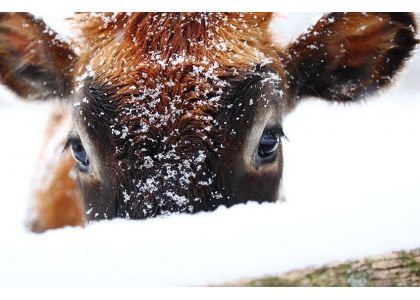
12 million livestock face a dangerous situation as Mongolia endures one of its harshest winters in decades.
As reported by the Mongolian government, in December, 90% of the country was covered in snow at depths reaching 38 cm. This is abnormally high for the country, where millions of nomad families have historically relied on pastures to feed their herds during the winter.
In 41 districts, farmers have already run out of feed. In 48 other districts, the situation is almost critical, the national emergency management agency reported.
The feed shortage is believed to be the worst in the town of Bulgan, in the northern part of the country. Over the past weeks, the region received almost 20 times more snow compared to the average, resulting in it covering almost all pastures and threatening 3.6 million heads of cattle.
If the weather conditions do not improve, the losses will reach 12 million heads, the Ministry of Agriculture, Food and Light Industry warned. Mongolia’s herd consists of 69.1 million heads of cows, sheep and goats.
At the end of last year, nearly 1 million heads of animals across the country died from starvation, incurring losses close to US$100 million to the farmers. Local press reported that this proved to be a tough blow for the part of the population leading a nomadic lifestyle, earning money only by raising livestock.
To deal with the crisis, the Mongolian government recently banned feed exports, with the measure set to last through the end of 2024. However, it would hardly help farmers in the short term. Mongolian feed export was primarily limited to small cross-border trade.
The move, however, indicates that the government is preparing for a long battle. Recent forecasts predicted that the abnormal weather could continue during winter and part of spring 2024, the emergency management agency said. In addition to heavy snowfall, the country is braced for extremely low temperatures, up to -40°C.
Russia and China have provided feed in the form of aid to Mongolia, but those quantities will not make a big difference, according to local press.